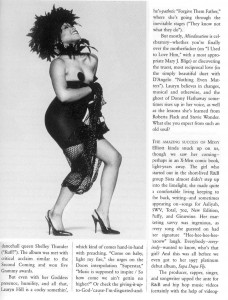This semester, Professor Simpson and I worked on a theoretical framework of autobiographical production in hip-hop culture. As reference, we used a range of texts: Reality Hunger, by David Shields; Memoir: A History, by Ben Yagoda; The Vibe History of Hip Hop anthology; and cultural criticism by Imani Perry, Tricia Rose, Russell A. Potter, Jeff Chang, and Steve Stoute.
The holy grail of “keeping it real” is one that concerns scholars and artists alike. Authenticity is a central mandate of hip-hop, a fact that becomes increasingly contested as the genre courts more mainstream audiences. What does it mean when hip-hop—a black American art form with strong regional ties—enters the realm of popular culture as an alleged testimony to black experience? What does it mean when popular artists deliberately invoke urban poverty in order to shore up their own credibility? What cultural narratives are reinforced when they rap about bootstrapping their way to success, incorporating specific racial performances—”badman” posturing and braggadocio; lavish displays of consumerist excess—into their branding as “the real thing”?
We connect the rise of popular hip-hop to shifting trends in cultural production: namely, the cult of the individual as expressed through autobiography. Autobiography has always been a political pursuit for black Americans, beginning with slave narratives in the eighteenth century. Claims of authenticity have plagued this tradition since it began, a result of its role in political conflicts between pro-abolitionists and supporters of slavery. We also link anxiety about “realness” to the contradictory nature of autobiography itself. On one hand, memoir claims to tell the truth; on the other, it fabricates its vision of the self based on the narrative the autobiographer has assigned. Hip-hop performers engage with these realities through complex strategies of self-branding, often using social media.
By raising these questions of memory and realness, we hope to determine the means and the ends of the black “subject” that hip-hop produces.


